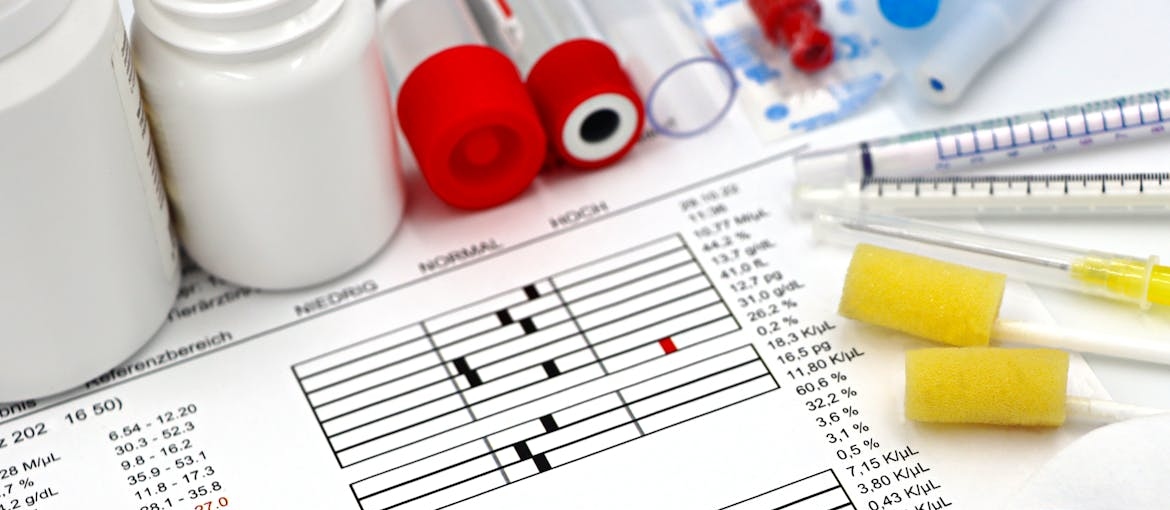Alcohol use affects more people than many realize. Some drink to relax, some to cope. But when drinking starts to cause problems, it can turn into something more serious. That’s why it’s worth talking about alcohol use disorder during Alcohol Awareness Month. This isn’t just about facts or numbers—it’s about real lives. Maybe you’re worried about your own drinking, or someone close to you. You’re not alone, and help is out there. Drug and alcohol treatment centers in West Virginia support people every day who thought they couldn’t stop. Knowing what alcohol use disorder looks like can make a big difference. This month is a good time to learn more and take that first step. It might feel scary, but change starts with paying attention and getting support when it’s needed.
Alcohol Awareness Month and Its Role in Educating the Public About Addiction
Alcohol Awareness Month began in 1987. The goal was to help more people understand the impact of alcohol misuse. Since then, it has played a big part in bringing attention to the signs of addiction and the need for support. Each April, Alcohol Awareness Month and addiction education go hand in hand. This time allows families, schools, and health providers to talk openly about alcohol use.

Why is Alcohol Awareness Month important for educating people on alcohol addiction? Because many still think of addiction as a weakness, not a health issue. This month helps change that. It gives people facts, real stories, and a reminder that help is available. For those living in the area, alcohol rehab WV programs offer support, therapy, and long-term care for recovery. Change can start today.
What Is Alcohol Use Disorder (AUD)?
Alcohol Use Disorder (AUD) is more than just drinking too much. It’s when someone keeps drinking even though it’s causing problems. This can include health issues, trouble at work, or problems with family. You might wonder, what are the dangers of alcohol use disorder? They include liver damage, memory loss, and depression. It can even raise your risk of cancer and heart disease.
You may also ask, how does alcohol addiction affect your health? It can hurt your brain, body, and mood. Over time, it gets harder to stop drinking without help. AUD doesn’t look the same for everyone. Some people hide it well. Others lose jobs or relationships. If you or someone you know is struggling, it’s okay to ask for help. You’re not alone.
Physical and Mental Health Risks of AUD
Alcohol use disorder during Alcohol Awareness Month gives people a chance to look at how alcohol affects the body and mind. The alcohol use disorder dangers go beyond just feeling hungover or tired. The effects can be long-lasting and sometimes permanent. Here are some major risks of alcohol addiction and consequences of alcohol abuse:
- Liver damage, including fatty liver, hepatitis, and cirrhosis
- High blood pressure and heart disease
- Weak immune system, making it harder to fight off illness
- Increased risk of cancer, especially in the mouth, throat, and liver
- Mood disorders like anxiety, depression, and irritability
- Trouble focusing or remembering things
- Increased risk of stroke and brain damage

Social and Behavioral Consequences
Alcohol use disorder during Alcohol Awareness Month isn’t just about health risks—it’s also about how drinking can affect daily life. Alcohol can lead to problems with friends, partners, and coworkers. Some people start missing work or school. Others argue more with loved ones or pull away from the people they care about.
It can feel like alcohol is the only thing that helps, especially for those who struggle with anxiety. Alcohol use in people with social anxiety disorder is common because drinking can feel like a quick fix. But over time, it often makes the anxiety worse. It can also lead to isolation, legal trouble, or even unsafe behavior. These are real consequences that affect how people live and connect with others. If alcohol is getting in the way of your life, it’s okay to ask for help.
Warning Signs and Symptoms to Watch For
The symptoms aren’t always obvious at first. But they tend to grow over time. Many people ignore them until something serious happens. During Alcohol Awareness Month, it’s helpful to pay close attention to the small changes. If you recognize these signs, alcohol rehab Charleston WV residents trust could be a good place to start:
- Drinking more often or more than planned
- Craving alcohol when not drinking
- Hiding alcohol or drinking in secret
- Feeling sick, shaky, or anxious without alcohol
- Skipping work, school, or family events
- Getting angry or defensive when someone brings up drinking
- Blackouts or memory gaps after drinking
- Trouble stopping even when you want to
- Drinking even when it causes problems at home or work

Who Is Most at Risk?
Anyone can develop alcohol use disorder, but some people face more risk than others. If you grew up around heavy drinking, it might feel normal. Stress, trauma, or mental health struggles can also lead people to drink more often. Young adults, older adults living alone, and people with anxiety or depression are especially at risk.
There’s also growing concern about alcoholism in West Virginia veterans, many of whom deal with PTSD, chronic pain, or loneliness. Some start drinking to cope, but then it gets out of hand. If you’re in one of these groups—or care about someone who is—it’s important to pay attention to patterns. Drinking may seem like a way to relax, but it often leads to much more. Knowing the risks is a strong first step toward finding real help.
Stigma and Misunderstanding Around AUD
Many people still carry outdated or harmful beliefs about alcohol use disorder. These ideas can stop someone from asking for help or even recognizing that they need it. Below are common misunderstandings that cause shame, delay treatment, and hide the real alcohol use disorder dangers:
- Shame keeps people silent: Many don’t ask for help because they’re afraid of being judged.
- “It’s just a phase” myth: Some think it’s not serious and will go away on its own.
- Only daily drinkers need help: People believe you must drink every day to have a problem.
- Strong people don’t struggle: There’s a false idea that willpower alone should fix everything.
- Treatment is only for rock bottom: Many wait too long, thinking things must get worse first.
- It’s not a real illness: Some still don’t believe alcohol use disorder is a medical condition.
- You can just quit: People assume stopping is easy, not realizing the mental and physical struggle.
- Stigma hides alcohol use disorder dangers: Fear and misunderstanding keep people from learning the real risks.
Getting Help and Finding Treatment
If you’re dealing with alcohol use disorder during Alcohol Awareness Month, this is a good time to explore your options. You might feel unsure about what help looks like. That’s normal. Many people don’t know where to begin. You’ll learn about different treatment types, how virtual therapy works, and how to support someone you care about through recovery.

Types of Treatment: Therapy, Medication, and Support Groups
Treatment doesn’t look the same for everyone. Some people benefit from talk therapy. Others need medication to manage withdrawal or reduce cravings. Many do best with a mix of both. Support groups like AA or SMART Recovery can also help. These groups create space to talk without judgment. They’re free and often easy to find.
For people who served in the military, veterans alcohol rehab options are designed with their unique needs in mind. Some programs include trauma-focused therapy or offer help adjusting to civilian life. What matters most is taking that first step. You don’t have to do it alone. There are people who care and want to help. If this is your moment to start, there’s help ready when you are.
Role of Virtual Therapy and Online Programs
Not everyone can attend in-person treatment. Work, family, or location can make that tough. That’s where virtual therapy helps. You can talk to a licensed therapist from your home. Online programs often include group sessions, individual therapy, and tools you can use between meetings. Many people find it easier to stay consistent with therapy this way. You still get real support—but without long drives or waiting rooms.
Virtual care works well for people in early recovery, those stepping down from inpatient care, or anyone who just needs flexible help. During Alcohol Awareness Month, many providers highlight online options to reach more people. If you’ve been putting off therapy because of time or distance, this could be your sign to try a virtual session. It’s private, easy to access, and built around your life.

Supporting a Loved One Through Recovery
It’s hard to watch someone you love struggle with alcohol. You may feel helpless or unsure what to say. Still, your support matters more than you might think. Recovery works better when people feel supported. Ask questions. Listen without pushing. Offer help with daily tasks if they’re going through treatment. Encourage them, but don’t take over. Some families also need help for themselves. That’s okay. You’re dealing with stress too.
Good news—many alcohol rehab centers accept PEIA insurance rehab coverage, which helps ease the financial pressure. Look into support groups for families as well. Al-Anon, for example, can help you stay strong while your loved one heals. During Alcohol Awareness Month, take time to learn what support looks like. Being there for someone can change everything—one day, one step at a time.
How Alcohol Use Disorder Affects Families and Relationships
Alcohol use doesn’t only affect the person drinking. It impacts everyone close to them. You might feel hurt, frustrated, or completely shut out. Arguments may happen more often. Trust can fade. Children are more exploratory and often notice more than adults think. Over time, families start to change how they act just to avoid problems. Some people take on too much just to keep things going. Others pull away because it’s too hard to watch. These changes don’t happen all at once—but they add up.
Living with someone who struggles with alcohol can feel confusing and lonely. You may blame yourself or feel like nothing helps. That’s not true. Support exists for families, too. During Alcohol Awareness Month, take time to learn how alcohol use disorder affects relationships—and what you can do to protect your own well-being.

How to Participate in Alcohol Awareness Month
You don’t need a big platform to make a difference. Small actions help people learn and feel less alone. Sharing facts or talking openly can change how others see alcohol problems. Here are ways you can take part and spread the word about alcohol use disorder dangers:
- Share real stories: Post videos or quotes from people in recovery.
- Talk with your kids: Have honest talks about alcohol and peer pressure.
- Support a local event: Join or volunteer at a town meeting or awareness walk.
- Post facts online: Use social media to share simple stats or hotline numbers.
- Ask your workplace to join: Suggest a short talk or resource table.
- Learn something new: Watch a short film or attend a free webinar on addiction.
Moving Toward Understanding and Support
Alcohol use disorder during Alcohol Awareness Month gives us a reason to talk openly about a problem many people face. If alcohol is starting to cause issues in your life, you’re not alone. Help exists, and it works. You don’t need to hit rock bottom to reach out. Small steps matter. Even reading this is a good start. Whether it’s for you or someone you care about, learning more can change everything. Alcohol doesn’t have to control your future. Use this month as a chance to ask questions, find support, and make a plan. Life can feel better than this. And it starts with one honest decision to reach out.



